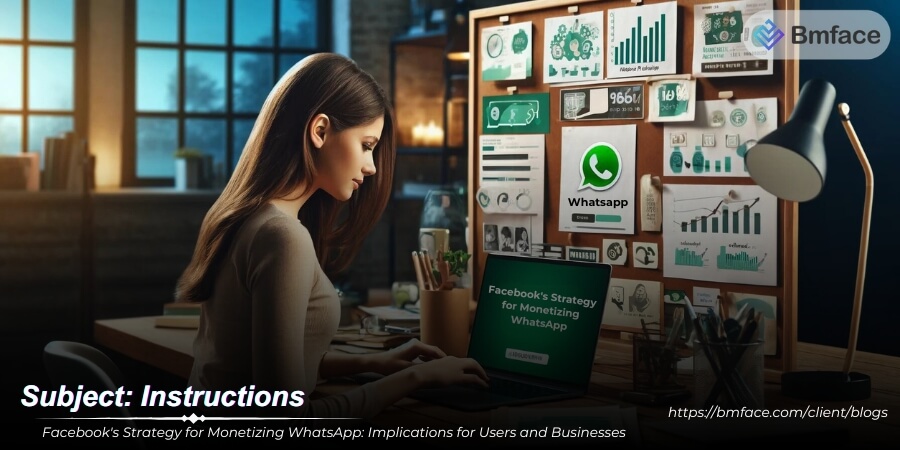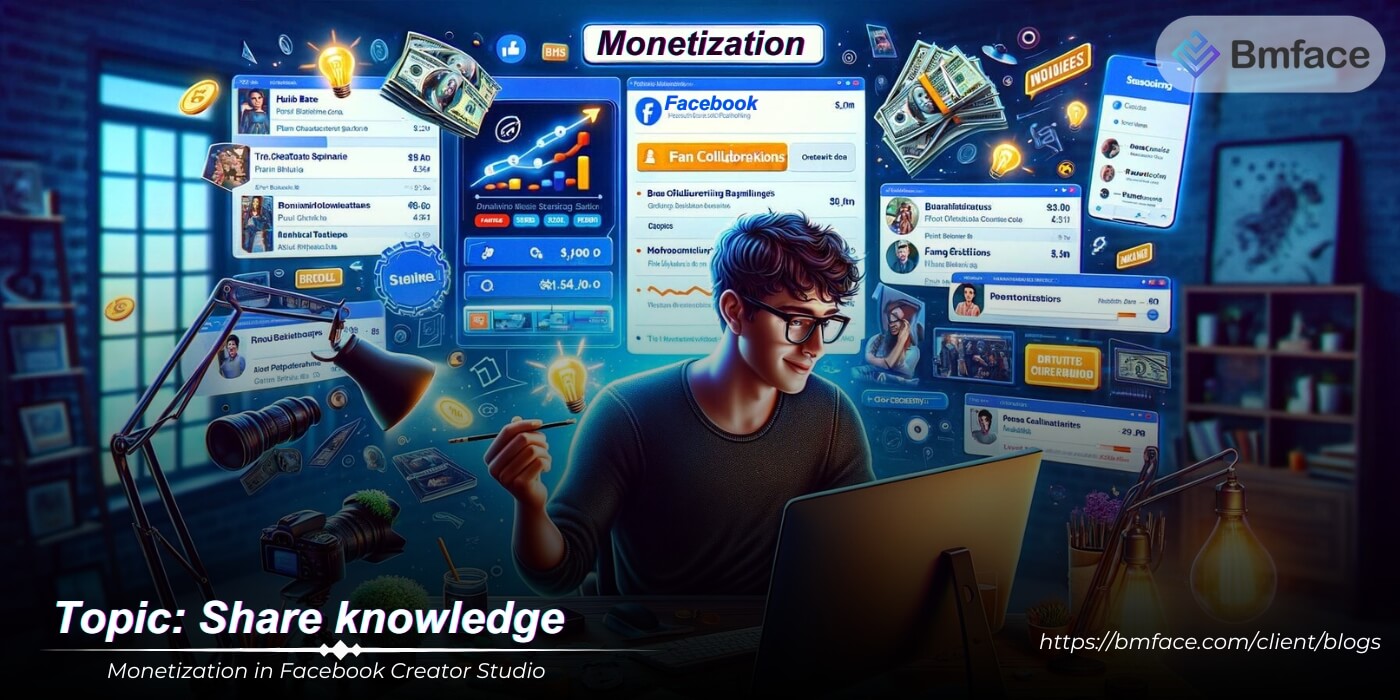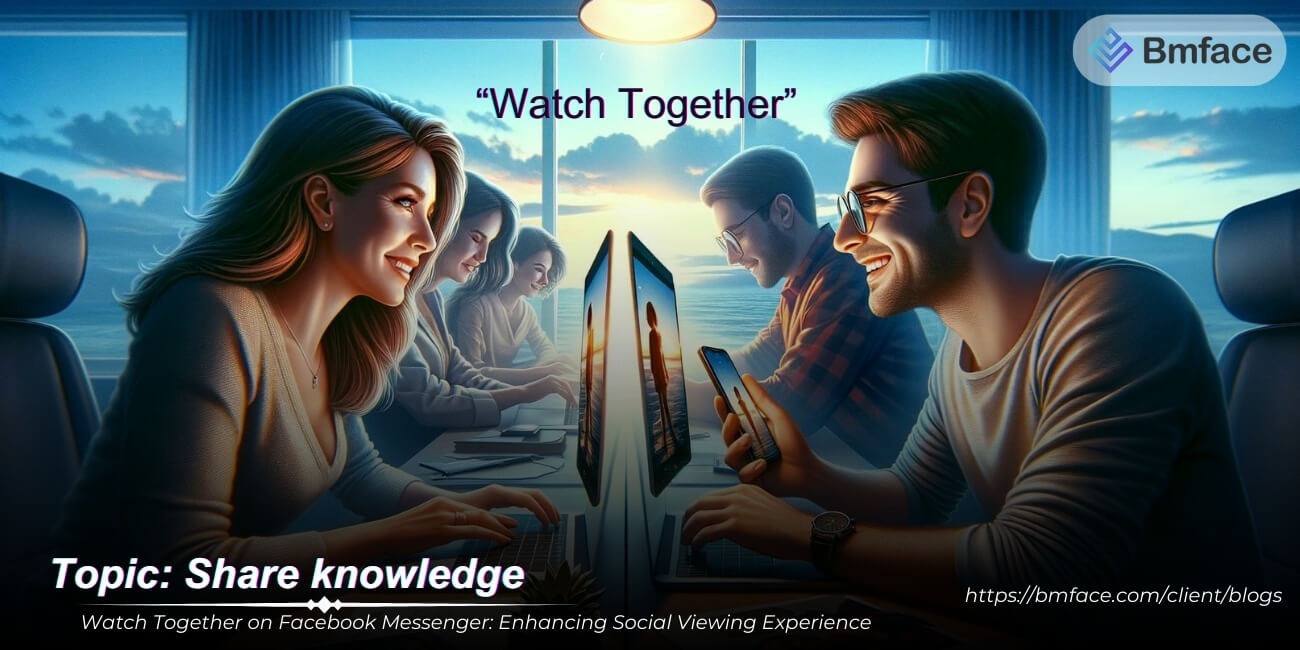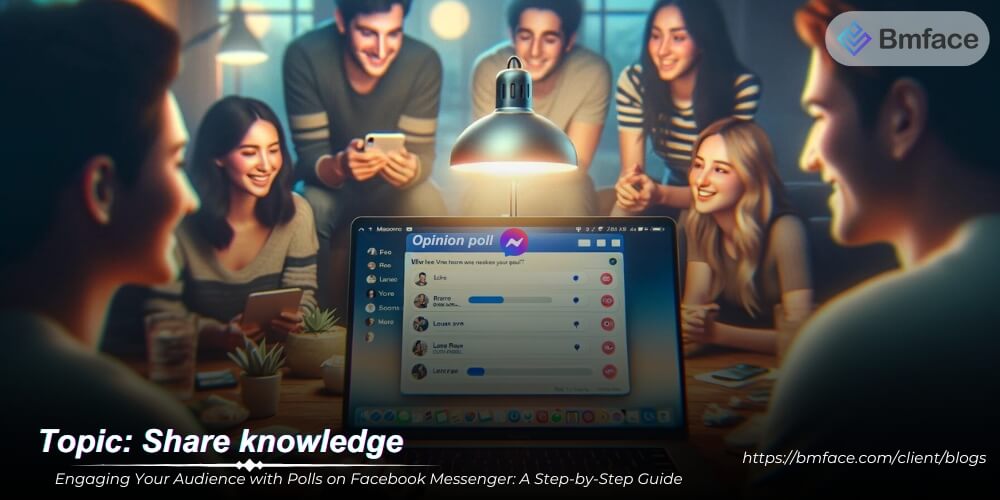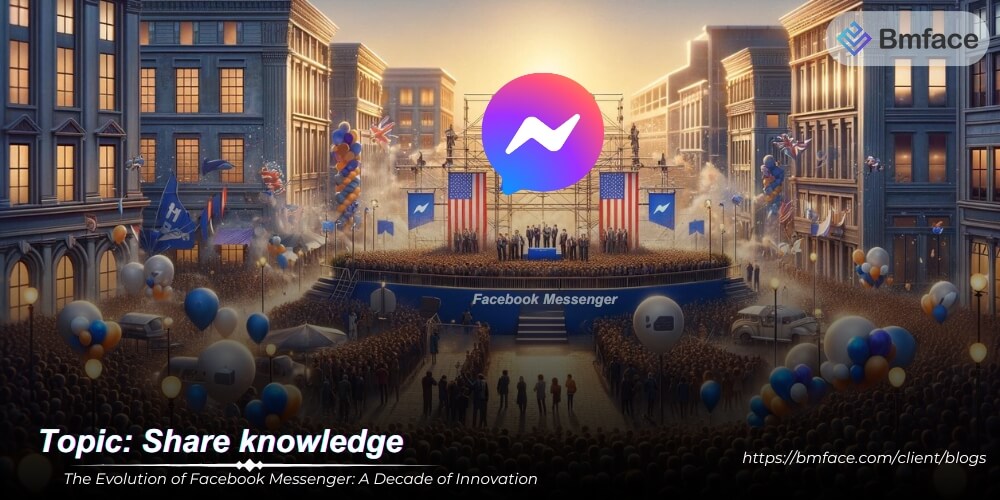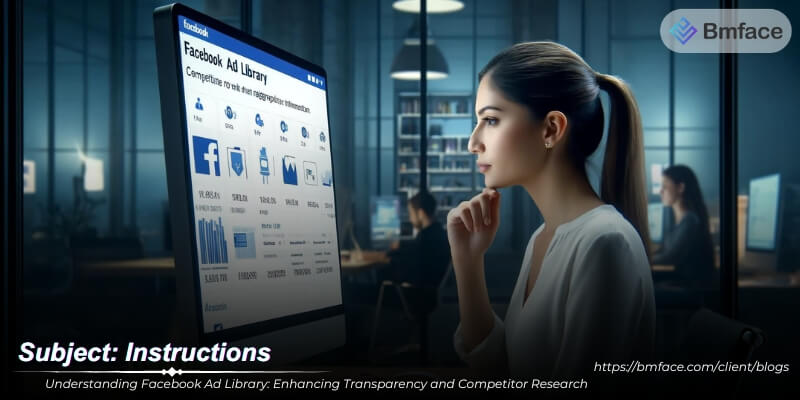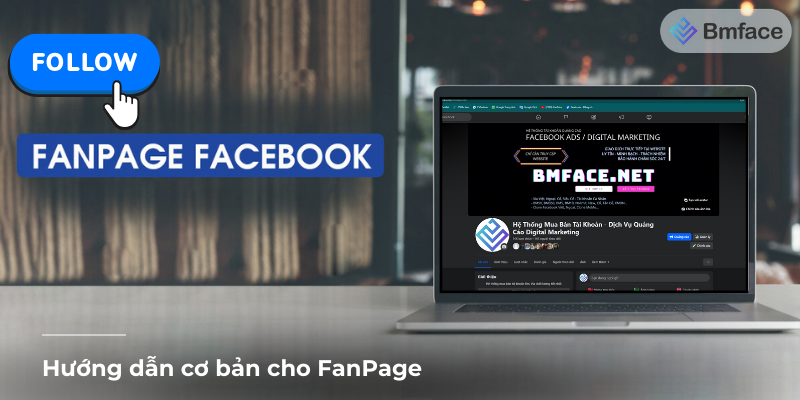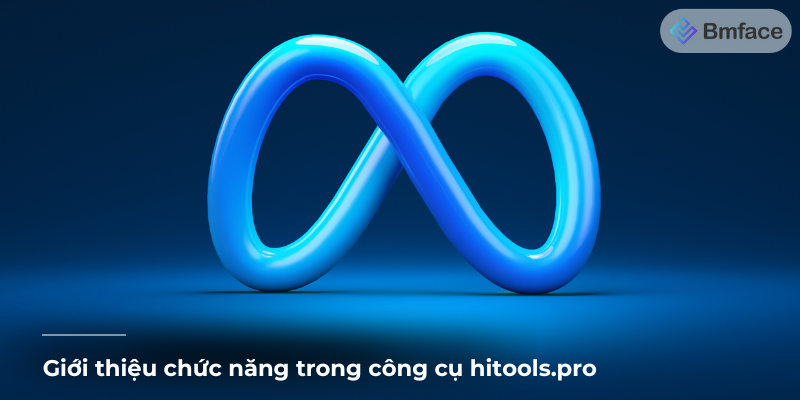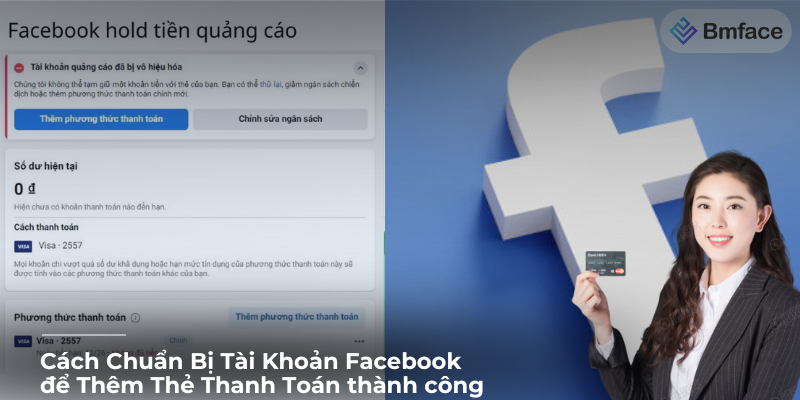Facebook's acquisition of WhatsApp in 2014 marked a pivotal moment in the tech industry, highlighting the potential for strong growth in user engagement. Since then, the focus has shifted to monetizing one of the world's most popular messaging apps without compromising the user experience. BMface explores Facebook's strategic approaches to monetizing WhatsApp and the potential implications for users and businesses.
Understanding Facebook’s Monetization Strategy for WhatsApp
Facebook's approach to monetizing WhatsApp reflects a strategic blend of enhancing business communication tools while respecting the platform's minimalist, user-focused design. Here's an in-depth look at Facebook's monetization strategy for WhatsApp:

1, Background and Objectives
a, Strategic Acquisition
- Acquisition Goals: When Facebook acquired WhatsApp in 2014, it gained access to a massive global user base. The initial strategy focused on growth and user retention, with monetization strategies taking a back seat to ensure the platform's widespread adoption and popularity continued unabated.
b, Gradual Integration
- Balancing Act: Facebook has been cautious in introducing monetization features to avoid alienating WhatsApp's user base, which values the app's simplicity and lack of ads. The strategy involves slowly integrating features that both enhance user experience and open revenue streams, primarily through services for businesses.
2, Development of Business Features
a, WhatsApp Business App
- Small Business Focus: The WhatsApp Business app was introduced to help small businesses manage customer interactions more effectively. Features like business profiles, automated messages, and quick replies make communication smoother and more professional.
- Enterprise Solution: For larger businesses, WhatsApp launched the Business API, which allows for large-scale communication that can be automated and integrated with existing customer service platforms. This service is particularly focused on high-volume, high-touch customer interaction scenarios.
3, Monetization Methods
a, Business Communication Charges
- Conversation Charges: WhatsApp plans to charge businesses for certain services, such as sending notifications to customers (e.g., appointment reminders, shipping information) after a free introductory message limit is reached. This model is designed to monetize customer-business interactions without disrupting the user experience for private conversations.
b, Shopping and Payment Integration
- WhatsApp Pay: Integrating payment functionalities directly into WhatsApp enhances the platform's utility for businesses and users, facilitating transactions directly within the app, streamlining the purchase process, and opening additional revenue streams for Facebook through processing fees.
- In-App Purchases: Expanding on the idea of WhatsApp as a business platform, Facebook is exploring ways to integrate shopping features, allowing users to browse and purchase products without leaving the chat interface.
4, Future Prospects
a, Enhanced Data Analytics
- Valuable Insights: By providing businesses with more sophisticated data analysis tools through WhatsApp, Facebook can offer valuable insights into customer behavior and communication effectiveness, potentially as a paid service.
b, Advertising Potential
- Status Ads: While WhatsApp has remained ad-free, there is potential for introducing subtle advertising formats, such as sponsored messages or status updates, that could generate revenue without compromising the core user experience.
Facebook's monetization strategy for WhatsApp focuses on creating value-added services for businesses while maintaining the clean, user-focused design that has made the app so popular worldwide. This approach ensures that while the platform does begin to generate revenue, it remains true to its roots as a straightforward, reliable messaging app. The challenge lies in balancing commercial interests with user satisfaction, a task that will require careful planning and execution as Facebook continues to explore new avenues for revenue generation.
Key Monetization Tactics
Facebook's monetization strategy for WhatsApp centers around a few key tactics that aim to transform how businesses interact with customers while opening new revenue streams. Here’s a deeper look into these tactics:
1, Key Monetization Tactics

a, Introduction of WhatsApp Business API
Scalability and Integration
- API Access: The WhatsApp Business API is aimed at large businesses and enterprises, allowing them to integrate WhatsApp messaging functions directly into their existing customer service and CRM systems. This facilitates automated, high-volume messaging for customer support, updates, and notifications.
- Revenue Model: Businesses are charged for each message sent via the API after the initial 24-hour window following a customer's last message. This fee-based model scales with usage, making it suitable for large companies with extensive customer interaction needs.
Enhanced Customer Interaction
- Automated Responses and Notifications: Companies can automate responses to frequently asked questions, send out order confirmations, shipping details, appointment reminders, and more, improving efficiency and customer satisfaction.
- Personalized Communication: The API allows for personalization at scale. Messages can be customized based on customer data, making interactions more relevant and increasing the effectiveness of communication efforts.
b, WhatsApp Pay
Transaction Facilitation
- Direct Payments: WhatsApp Pay enables users to send and receive money directly through the app, just as easily as sending a message. This feature uses a UPI (Unified Payments Interface) system in countries like India, which supports immediate bank-to-bank transfers.
- Business Transactions: For businesses, WhatsApp Pay can facilitate seamless in-chat payments, allowing customers to complete purchases without leaving the app. This adds convenience for users and can increase conversion rates for businesses.
Potential Revenue Streams
- Processing Fees: While WhatsApp Pay does not currently charge a processing fee to users, there is potential for future monetization through fees on transactions, especially for business transactions or cross-border payments.
2, Future Opportunities
Advertising and Marketing Tools
- Status Ads: WhatsApp may explore introducing ads in the "Status" feature, similar to Instagram Stories ads. This would allow businesses to place full-screen ads that appear between WhatsApp Status updates from contacts.
- Sponsored Messages: Another potential area for monetization is sponsored messages, where businesses can send promotional content directly to users who have opted in or previously interacted with the company.
Enhanced Data Analytics
- Insights Services: Providing businesses with more advanced analytics services for a fee could be another revenue avenue. These insights would help businesses better understand customer interactions and refine their marketing strategies.
The monetization of WhatsApp through the Business API and WhatsApp Pay represents a strategic move by Facebook to capitalize on the platform's vast user base by offering valuable, business-friendly features. These features not only promise to open new revenue channels for Facebook but also enhance the utility of WhatsApp for businesses, fostering greater engagement and providing new ways to serve and interact with customers. As WhatsApp continues to integrate more deeply with Facebook's ecosystem, its potential as a revenue-generating platform will likely expand, balancing user-centric features with business needs.
Impacts on Users
The introduction of monetization strategies on WhatsApp significantly impacts users, both in terms of user experience and privacy concerns, as well as the potential benefits that these changes might bring. Here's an in-depth look at these impacts:

Impacts on Users
a, User Experience and Privacy
Intrusive Advertising
- Potential Ad Overload: The introduction of ads, such as Status ads or sponsored messages, could disrupt the clean, ad-free interface that WhatsApp users are accustomed to. This change might lead to a decline in user satisfaction due to perceived intrusiveness.
Data Privacy Concerns
- Increased Data Sharing: With the deeper integration of WhatsApp with Facebook's infrastructure, there may be increased sharing of personal data between the platforms. This raises concerns about privacy, particularly regarding how this data is used for targeted advertising and whether it adheres to global privacy regulations like the GDPR.
- Transparency Issues: Users may feel they lack control or clear information about what data is shared and how it is used, leading to distrust or discomfort with the platform.
b, Potential Benefits
Enhanced Functionality
- Improved Business Communication Tools: New features driven by monetization efforts, such as WhatsApp Business API, can enhance the way businesses and consumers interact. This could lead to more streamlined communications, better customer service, and personalized experiences directly within the app.
- Convenient Payment Options: The integration of WhatsApp Pay allows users to conduct transactions directly through the app, offering convenience and potentially increasing user engagement by simplifying the process of purchasing goods and services.
User-Centric Innovations
- Feature Enhancements: Monetization could fund the development of new, innovative features that enhance user experience beyond just communication. For example, the integration of advanced AI could improve chatbot functionalities, making interactions more efficient and user-friendly.
The integration of monetization strategies in WhatsApp offers a mixed bag of impacts for users. While there are valid concerns regarding ads and privacy that could potentially harm the user experience, there are also significant benefits to be gained. These include enhanced functionalities that make the app more useful for everyday tasks and deeper interactions with businesses. For users, the key will be how Facebook balances these changes—ensuring that the introduction of new features and monetization efforts enhances, rather than detracts from, the overall user experience. As WhatsApp continues to evolve, it will be crucial for the platform to maintain its core values of privacy and simplicity, which have been central to its widespread adoption and popularity.
Impacts on Businesses
The integration of advanced features in WhatsApp, driven by Facebook's monetization strategies, offers significant impacts and opportunities for businesses across various industries. Here’s how these developments could affect business operations, marketing strategies, and customer relations:

Impacts on Businesses
a, Enhanced Customer Engagement
Direct and Personalized Communication
- Immediate Interaction: The use of WhatsApp for business allows companies to interact with customers in real-time, providing immediate responses to inquiries, which can enhance customer satisfaction and loyalty.
- Personalized Service: With features like WhatsApp Business API, businesses can send personalized messages based on previous interactions or customer preferences, which can significantly enhance the customer experience.
Automation of Customer Interactions
- Chatbots and Automated Replies: Automation via the WhatsApp Business API helps businesses manage high volumes of messages efficiently, ensuring that customers receive timely responses even during non-business hours.
b, Marketing and Sales Opportunities
Targeted Advertising
- Status Ads: If introduced, Status ads would allow businesses to place advertisements directly in the WhatsApp status feature, potentially reaching customers in a highly visible yet non-intrusive manner.
- Sponsored Messages: Businesses could utilize sponsored messages to promote special offers, new products, or events directly to customers who have opted-in or engaged with the business previously.
Seamless Transactions
- WhatsApp Pay: This feature can transform WhatsApp into a transactional platform where customers can make purchases directly through the app. This convenience could lead to increased sales and enhanced customer experiences by streamlining the buying process.
c, Improved Operational Efficiency
Centralized Communication Platform
- Unified Messaging: With WhatsApp’s integration into business operations, companies can centralize their customer communications in one platform, reducing the complexity and costs associated with managing multiple communication channels.
Scalability
- Scalable Customer Service: The WhatsApp Business API allows businesses to scale their customer service operations efficiently. By handling large volumes of messages automatically, businesses can maintain a high level of service as they grow.
The evolving features of WhatsApp, driven by Facebook's strategic monetization, present both opportunities and challenges for businesses. The potential for enhanced customer engagement through direct and personalized communication channels, combined with new marketing and sales opportunities, positions WhatsApp as a powerful tool for business growth and customer relations. However, businesses must also be mindful of the potential impacts on customer privacy and trust, ensuring that they navigate these new features responsibly. As digital communication continues to evolve, WhatsApp's role in business strategies is set to become increasingly significant, making it essential for businesses to stay informed and adapt to these changes effectively.
Challenges and Considerations
Facebook's foray into monetizing WhatsApp entails a delicate balancing act between advancing business goals and maintaining the high standards of user experience and privacy that have defined the platform. Here’s an in-depth look at these challenges and considerations:
Challenges and Considerations

a, Balancing Monetization with User Satisfaction
Maintaining App Integrity
- Preserving Simplicity: WhatsApp is renowned for its straightforward, user-friendly interface. Introducing ads or too many complex features could complicate the user experience, potentially alienating long-time users.
- Ensuring Reliability: As more features are added, particularly those related to business transactions or communication, maintaining the app’s reliability will be crucial. Downtimes or bugs associated with new features could diminish user trust and satisfaction.
b, Regulatory Hurdles
Compliance with Data Protection Laws
- Navigating GDPR: Integrating WhatsApp more deeply with Facebook's data infrastructure requires careful consideration of GDPR and other privacy regulations. This includes ensuring that user data is handled transparently and that users have control over their personal information.
- Global Data Privacy Concerns: Different regions have varying requirements and standards for data protection. WhatsApp must ensure its new features comply with these laws across all markets, which can be a complex and resource-intensive process.
c, User Trust and Data Security
Maintaining Trust
- Transparent Data Practices: To maintain user trust, Facebook must be transparent about what data is collected from WhatsApp, how it is used, and who it is shared with, especially in light of past criticisms and concerns.
- Security Measures: As features like WhatsApp Pay expand, ensuring the security of financial transactions and personal data will be paramount. Breaches or vulnerabilities could lead to significant backlash and loss of user trust.
d, User Education and Adoption
Encouraging Adoption of New Features
- User Education: As new features are rolled out, educating users on their benefits and how to use them effectively will be key to adoption. This includes clear communication about what these changes mean for their everyday use of WhatsApp.
- Feedback Mechanisms: Implementing mechanisms to gather and respond to user feedback about new features can help tailor developments to better meet user needs and preferences.
Conclusion
Facebook’s strategy to monetize WhatsApp represents a critical pivot point for the platform, promising to unlock new functionalities and business opportunities. However, this strategy also brings substantial challenges, especially in maintaining the simplicity and security that users value. The success of this venture will hinge on Facebook's ability to innovatively integrate new revenue-generating features without compromising the core attributes that have made WhatsApp a global messaging leader. Moving forward, the focus must remain on user-centric innovation and stringent adherence to global regulatory standards, ensuring that WhatsApp continues to thrive both as a business tool and a trusted platform for personal communication.
For more insights and updates on effective social media strategies, make sure to follow Bmface and our tutorial blog, where we share the latest and most effective content marketing tips.
Cảm ơn bạn đã theo dõi bài viết. Mua hàng tại Bmface.com để ủng hộ đội ngũ Admin viết thêm nhiều bài viết hay. Xin cảm ơn!


